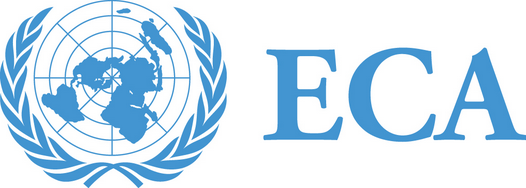
Elizabeth Antidius Shumbusho | Africa Guardian
The United Nations Economic Commission for Africa (ECA) partnered with key stakeholders to explore the transformative role of higher education in fostering sustainable development at the “2024 UNESCO Forum on Higher Education in Africa: A Driver for Sustainable Development.” The event, held from December 10–12, 2024, in Nairobi, marked part of the African Union’s Year of Education 2024 celebrations under UNESCO’s leadership.
The forum brought together policymakers, education experts, entrepreneurs, business leaders, and ICT professionals to share insights and strategies to advance higher education in Africa.
ECA’s Parallel Session: “Rethinking Higher Education in Africa for a Sustainable Future”
During the event, ECA hosted a pivotal session focused on reshaping Africa’s higher education landscape. Said Adejumobi, Director of the Strategic Planning, Oversight, and Results Division (SPORD) at ECA, delivered a compelling pre-recorded message advocating for urgent educational reforms. Key recommendations included:
- Developing curricula aligned with Africa’s developmental needs.
- Establishing robust financial mechanisms for education systems.
- Enhancing academic freedom to foster innovation and critical thinking.
- Transforming brain drain into brain gain by leveraging the skills and networks of Africa’s diaspora.
The session, moderated by Ms. Ulimwengu, Chief of Systems-Wide Coherence at SPORD, produced significant takeaways:
- Building stronger partnerships between universities and the private sector to enhance graduates’ entrepreneurial skills.
- Implementing internet governance protocols to support the sustainable use of AI technologies.
- Driving innovation and technology adoption within universities.
- Harnessing diasporan expertise to stimulate innovation and regional development.
ECA’s Broader Contributions
ECA members also contributed as panellists in several key sessions during the forum:
- Victor Konde, Scientific Affairs Officer: Explored how higher education could fuel innovation through entrepreneurship policies, technology transfer, and knowledge production. He emphasized youth empowerment in STEM fields, sustainable education funding, and aligning policies with global standards to enhance Africa’s innovation ecosystems.
- Thomas Senaji, Digitalisation Expert: Discussed the impact of digitisation on Africa’s education sector, highlighting areas like ICT for Development (ICT4D), digital identity, broadband infrastructure, AI, and digital payment systems. His insights underscored the role of digital transformation in enhancing higher education accessibility and relevance.
- Ayenika Godheart Mbiydzenyuy, African Centre for Statistics: Presented the Centre’s commitment to strengthening national statistical systems across Africa. He underscored the importance of quality statistics and geospatial data to inform decision-making and support sustainable development.
Shaping the Future of African Higher Education
The forum highlighted the urgent need for Africa to rethink its higher education strategies to meet the demands of the 21st century. By fostering innovation, embracing technology, and leveraging diasporan expertise, Africa can unlock the full potential of its higher education sector to drive sustainable development and global competitiveness.
___
